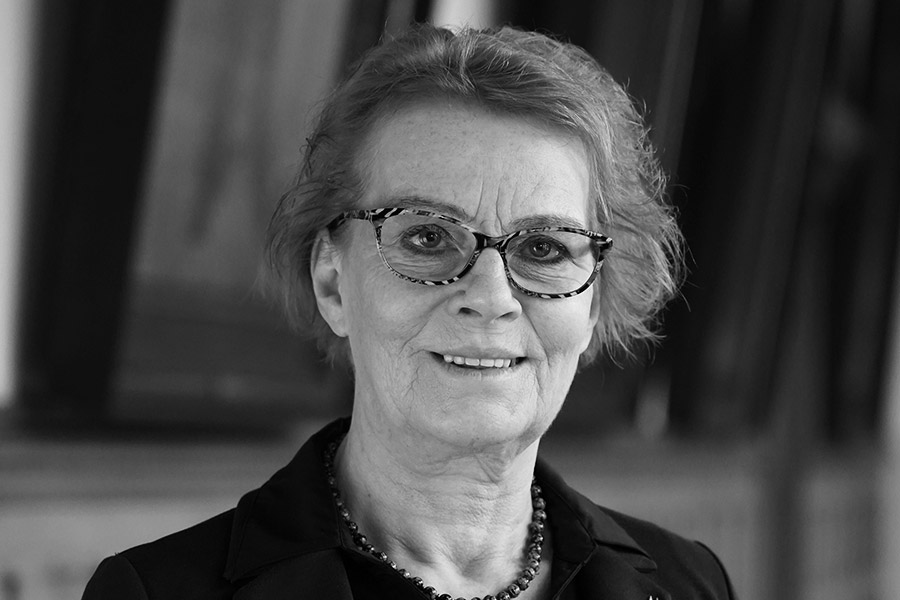About the project
“As Senator for Culture and Education, I thoroughly support the Bilingual Education project in Lübeck. A great offer for our young people from Lübeck! The concept is an enrichment of the Lübeck school and Kita landscape and an important step towards the international orientation of the learning offer. I am pleased that, in addition to the three primary schools, bilingual offers have now also started at some daycare centers and secondary schools, and I wish everyone involved a lot of fun and success.”
Monika Frank, Senator for Culture and Education for the Hanseatic city of Lübeck

“As an international company we need to attract employees from throughout the country and from all over the world. Lübeck has become a much more attractive location thanks to its schools which are also suitable for children that do not speak German. In addition, many Germans know, through their own personal experience, how important it is to turn children into citizens of the world early on so that they can go on to have better and more international opportunities later in life. A very good knowledge of English is an essential requirement for this. With this further development, Lübeck is able to build on centuries of cosmopolitanism.”
Stefan Dräger, CEO Drägerwerk AG & Co. KGaA

“Skilled professionals are crucial for driving forward the economy. With the “Bilingual Education” project, a child growing up in Lübeck can be best prepared to enter an increasingly networked international working environment, the main language of which is English. In addition, this project makes Lübeck much more attractive to professionals coming from abroad and enhances our status as an ideal location for businesses. It really is a fantastic project that we are happy to support.”
Dirk Gerdes, Managing Director Wirtschaftsförderung LÜBECK GmbH

“I think that it is great that bilingual teaching is being introduced into schools in the city! Learning a language promotes understanding between people, creates opportunities and strengthens Lübeck’s reputation both nationally and internationally as a perfect location for businesses. English is used by almost all companies as their corporate language. This means that pupils with “near native” English language skills can easily access the international training and job market. And for international professionals, Lübeck as a city has been made a much more attractive place to relocate to thanks to our bilingual learning opportunities.”
Dr. Frank Schröder-Oeynhausen, Managing Director Technikzentrum-Fördergesellschaft mbH
“The increased economic development of the region has led to a noticeable shortage of skilled professionals. It is clear that there are many other factors that increasingly come into play when it comes to choosing the right employer: cultural scene, gastronomy, proximity to the Baltic Sea, quality of the schools. For urgently needed skilled professionals coming from abroad, bilingual opportunities are the priority for their children and family. Only when this bilingual curriculum has been fully established in daycare centres, preschools and schools, can the new rules for immigration for skilled workers created by the coalition be a real success. This is why I support the bilingual education initiative in Lübeck.”
Markus Dusch, Chairman of the Executive Board for the Lübeck Agency for Employment

“Even though our bank operates in and around Lübeck, our employees still need good English skills. Many of our customers come from Scandinavian countries or are internationally active companies. In addition, the bilingual education offer increases the attractiveness of Lübeck. This is why we support the project.”
Frank Schumacher, Chairman of the Executive Board, Sparkasse zu Lübeck AG

“Bilingual education in preschools and schools is a major benefit for children, parents and companies. Lübeck as a city also benefits from the fact that children here can grow up to be citizens of the world and that skilled professionals from abroad move to Lübeck with their English-speaking children”.
Maike Krabbenhöft, Manager, Lübeck-Schwerin Employers’ Association
“Foreign language skills and intercultural understanding are essential when it comes to finding your place in today’s modern and international world, this means that being able to communicate in English is a crucial asset. When it comes to the competition to get the best skilled professionals, the availability of family-friendly facilities, such as bilingual preschools for example, is becoming increasingly important. With 5,000 employees from over 90 different countries we are a daily example of multicultural cooperation. This is why we are very happy to promote bilingual teaching in the region and consequently contribute to the development of our business.”
Gülten Bockholdt (privat)

“The earlier that a child learns a foreign language, the more flexible their brain and hearing becomes and the more open they are to other cultures. It really is the best tool that we can equip a child with to help them be prepared to face the globalised world of today as an adult.”
Dr. phil. Astrid Bednarski, Managing Director and Owner of inlingua Lübeck

“I am very happy that there are already 200 pupils in Lübeck that have the opportunity to take part in bilingual lessons at school. And the trend is clearly increasing. This confirms that it was definitely the right decision to establish a bilingual curriculum in Lübeck primary schools supported by the local economy. For the companies that are part of the Lübeck Chamber of Commerce and Industry, this commitment is a long-term investment. It pays off through the improved – in the sense of being more international and culturally open – preparation and education of children to ready them for the future requirements of their professional life. In short: Here in Lübeck we are creating the skilled professionals of tomorrow. We ensure that they can speak English and have a cultural understanding of the English-speaking world at the same time.
Friederike C. Kühn, President of the Lübeck Chamber of Commerce and Industry

“You learn a language by using it regularly – and this is exactly what happens in bilingual lessons. From the off, pupils are encouraged to speak, supported by native speakers and therefore lose the shyness to actively use the language outside of school. They will have a better grasp of the English language than I ever could have.”
Dr. Ulrich Hoffmeister (privat)

“As the largest industrial employer in Lübeck and Schleswig-Holstein, a choice of bilingual schools is a real asset for us. This strengthens Lübeck as a business location and also makes the city more attractive for employees coming from abroad. At our site in Lübeck we already employ people from around 50 different countries. Having a choice of bilingual schools fits perfectly into our open Hanseatic society. I myself spent several years living and working abroad with my family in the past. For us, the choice of bilingual primary schools was one of the main reasons that we chose to relocate to Lübeck.”
Dr. Reiner Piske, Chief Human Resources Officer, Drägerwerk AG & Co. KGaA

“We were able to recruit an Australian IT manager to the Dräger headquarters. However, he had to commute from Hamburg to Lübeck each day as at the time, there were no bilingual schools in Lübeck for his two young children. Luckily, the situation has now changed. This is a significant improvement for the city of Lübeck!”
Dr. Axel Ruoff, Head of HR Management – Supply Chain Management, Drägerwerk AG & Co. KGaA

“Equal opportunities, diversity and inclusion are integral parts of who we are as a company - and how we work. We are proud that people from different cultures work respectfully hand in hand at our company. We build on the individuality of each person and promote cultural diversity in our company and in society. That is why we have decided to support "Bilingual Education in Lübeck", in order to contribute to the cosmopolitanism of young people and improve multicultural coexistence in the region.”
Dipl.-Ing. Sten-Arne Saß, Geschäftsführung Bockholdt
